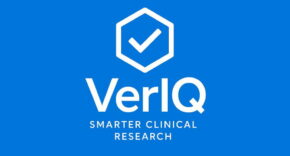
One of the key areas within the UK government’s recently launched AI Opportunities Action Plan is the promise to transform healthcare delivery through technology, using AI tools to leverage care and how the health system functions.
I recently attended NHS ConfedExpo in Manchester which underlined how the Action Plan and the new 10-year health plan in the UK will create opportunities for technology to drive the changes needed for a sustainable health care ecosystem. There was excitement after the announcement by Wes Streeting, Secretary of State for Health and Social Care, that NHS waiting lists had started to fall for the first time in 17 years so maybe the embracing of technology is already starting to bear fruit.
From enhancing diagnostic accuracy and easing the administrative burden on overstretched professionals, AI is poised to streamline a public service under immense pressures. Yet, as with all major innovation, the government’s intentions have been met with mixed feelings, raising some questions about privacy, trust and ethics.
While concerns around data security and confidentiality are valid, they shouldn’t overshadow the extraordinary potential of AI to improve patient outcomes and operational efficiency. The opportunity lies in finding a balanced approach, that both embraces innovation while remaining transparent and accountable.
Tools to enhance the NHS experience
Earlier this month, we saw evidence of the pioneering way in which a London hospital is using an AI tool to check patients for symptoms of skin cancer and giving them the all-clear without having to see a doctor.
The system is using the technology to analyse and interpret images with 99% accuracy of diagnosing benign cases and bringing down waiting lists. This is just one of many ways that AI can revolutionise the health sector.
Tools like this show that AI is not here to replace clinical care entirely or clinical judgment but can augment it. When implemented responsibly, AI tools can help clinicians make faster, more informed decisions, and reduce the heavy cost burden on the NHS. The key is ensuring these tools are used as enablers, working alongside healthcare professionals, not in replacement of them.
Natural Language Processing (NLP), for example, a branch of AI that enables machines to interpret and analyse human language, can comb through mountains of patient records and medical notes to identify patterns, extract relevant data, and flag potential diagnoses or treatment pathways – in seconds. This could revolutionise how GPs and specialists access and use patient data, giving them much deeper insights into a patient’s care and condition, and at speed. AI and NLP also make it possible to look for patients with similar characteristics and suggest best practice or next best options – augmenting the clinical evaluation with unparalleled speed and keeping the human in the loop and driving seat.
One of the government’s tools announced as part of its AI plan, ‘Humphrey’, is a common sense approach to modernising the UK health sector. It is designed to speed up the day-to-day work of civil servants to improve productivity, and in healthcare will be used to streamline the service and amount of time spent on paperwork and admin tasks.
How Europe is leading the way
Across Europe, SAS has been working with regional healthcare providers in several ways to push towards data-driven healthcare. From implementing predictive analytics models that can identify early signs of patient deterioration in hospitals, to creating personalised treatment plans for high-risk oncology patients to manage their cancer pathways more effectively.
As with the above, the power of computer vision could truly transform and digitise the NHS. This AI technique allows machines to ‘see’ and interpret visual data, such as X-rays, CT scans and MRIs, and with the right training, these systems can detect abnormalities with astonishing accuracy, and faster than human eyes would detect them. For conditions where time is critical, like strokes or cancers, this could mean the difference between early intervention and late-stage treatment.
Another powerful application we have seen elsewhere in Europe is in transplant services. AI-driven analytics are helping to improve organ donations – an area historically hindered by time-consuming manual processes.
The technology is being used to accurately predict which organs are suitable for donation and which aren’t. An example is work SAS has done with the University of Cambridge’s Maxwell Centre where it is expected more kidney organs can be made available as transplants – ultimately saving lives, improving a patient’s quality of life by avoiding the need for dialysis and saving the NHS millions of pounds annually.
The plan for change
Ultimately, any use of AI tools, in any sector, must be underpinned by rigorous safeguards and SAS has a consistent focus on responsible AI, ensuring that transparency and privacy are at the very core of every solution.
Public trust in the NHS has been built on the assurance that their personal information is protected, and so to preserve this, AI must be transparent in how it reaches conclusions, while also accountable to both clinicians, patients and regulators.
The digital transformation of the NHS is no longer a question of ‘if’ it will happen, it’s a matter of ‘how’ and ‘by when’. Embracing AI tools like Humphrey and integrating them into existing systems used by health care workers and user-friendly platforms like the NHS app, while ensuring strong governance frameworks around their use, is a common-sense approach to modernising our healthcare system.
The road ahead won’t be without challenges for the NHS. But with the right balance of innovation, responsibility and human oversight, AI can be a catalyst for more efficient, equitable, and higher standards of care.
The NHS should look for inspiration from initiatives like REAiHL in the Netherlands, which is the first Responsible and Ethics AI Health Lab in the world and aims to develop and deploy AI technologies that are safe, transparent, and aligned with ethical principles to improve healthcare outcomes. It is a collaboration between Erasmus Medical Center, Delft University, SAS and WHO. Responsible initiatives like this will increase the trust and reliability of future NHS AI systems.











